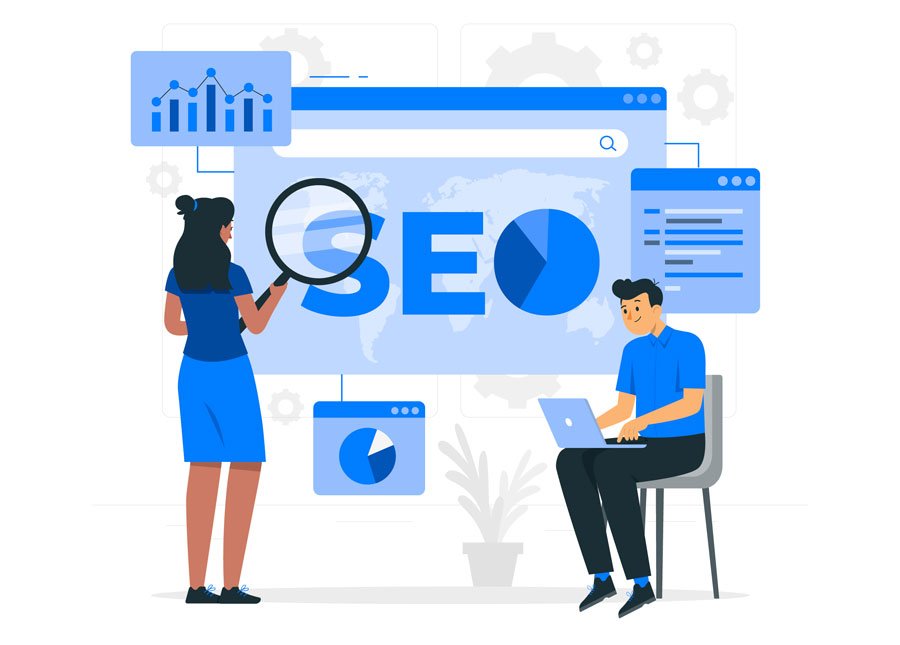Blogs

On-Page SEO vs. Off-Page SEO
In the realm of search engine optimization (SEO), there are two main categories: on-page SEO and off-page SEO. While both play crucial roles in improving a website’s visibility and ranking on search engine results pages (SERPs), they focus on different aspects of optimization. In this comprehensive guide, we’ll explore the differences between on-page and off-page SEO, their respective importance, and how businesses can leverage both strategies to enhance their online presence and attract more organic traffic.
Understanding On-Page SEO
On-page SEO refers to the optimization efforts made directly on a website to improve its search engine ranking. This includes optimizing content, meta tags, headings, images, and other on-page elements to make them more relevant and accessible to search engines. Key components of on-page SEO include keyword optimization, content quality, page speed, mobile-friendliness, URL structure, and internal linking. By focusing on these elements, businesses can ensure that their website is well-optimized for search engines and provides a seamless user experience for visitors.
Understanding Off-Page SEO
Off-page SEO, on the other hand, involves optimization efforts made outside of the website to improve its authority, relevance, and trustworthiness in the eyes of search engines. This primarily includes building backlinks from authoritative and relevant websites, as well as engaging in social media promotion, online reputation management, and influencer outreach. Off-page SEO signals, such as the number and quality of backlinks, social media shares, and online mentions, help search engines determine the credibility and authority of a website, ultimately impacting its ranking on SERPs.
The Importance of On-Page SEO
On-page SEO is essential for ensuring that a website’s content is relevant, high-quality, and easily accessible to both users and search engines. By optimizing on-page elements such as keywords, meta tags, and headings, businesses can improve their chances of ranking for relevant search queries and attracting targeted organic traffic. Additionally, on-page optimization plays a crucial role in enhancing user experience, which indirectly influences factors such as bounce rate, time on site, and conversion rate.
The Importance of Off-Page SEO
Off-page SEO is equally important as it helps establish a website’s authority, credibility, and relevance in the eyes of search engines. Backlinks from reputable and relevant websites act as votes of confidence, signaling to search engines that a website is trustworthy and deserves to rank higher in search results. Furthermore, off-page SEO activities such as social media promotion and online reputation management help increase brand visibility, drive referral traffic, and foster positive brand associations, all of which contribute to improved search engine rankings.
Key Differences Between On-Page and Off-Page SEO
- Focus: On-page SEO focuses on optimizing elements within a website, while off-page SEO focuses on building authority and credibility outside of the website.
- Control: Businesses have direct control over on-page SEO elements, but off-page SEO relies on external factors such as backlinks and social signals.
- Impact: On-page SEO influences factors such as keyword rankings and user experience, while off-page SEO impacts a website’s authority, relevance, and trustworthiness in the eyes of search engines.
Incorporating Both On-Page and Off-Page SEO
To achieve the best results in search engine optimization, businesses should incorporate both on-page and off-page SEO strategies into their digital marketing efforts. While on-page SEO ensures that a website’s content is optimized for search engines and users, off-page SEO helps establish the website’s authority and credibility in the online ecosystem. By striking a balance between on-page and off-page optimization, businesses can improve their website’s visibility, attract more organic traffic, and ultimately drive business growth in the competitive online landscape.
Conclusion:
In conclusion, on-page SEO and off-page SEO are both integral components of a successful search engine optimization strategy. While on-page SEO focuses on optimizing elements within a website to improve its relevance and accessibility to search engines, off-page SEO aims to build authority, credibility, and trustworthiness through external signals such as backlinks and social media mentions. By incorporating both on-page and off-page optimization techniques, businesses can maximize their website’s visibility, attract targeted organic traffic, and achieve higher rankings on search engine results pages.
Also Read: The Impact of AI on SEO: Changing the Game



